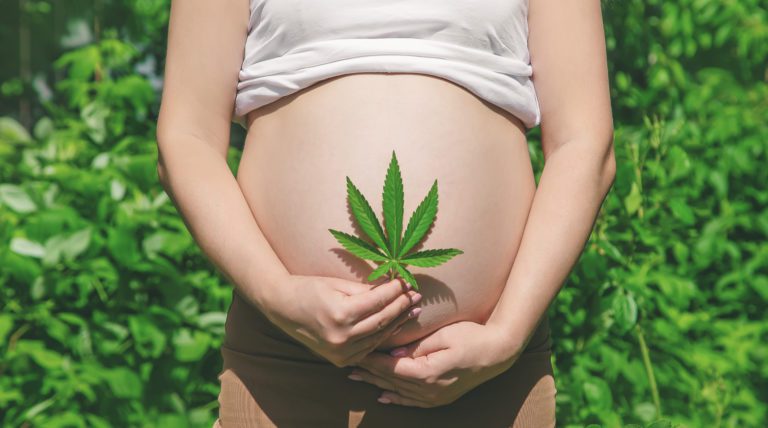Experts strongly recommend that you not use cannabidiol (CBD), tetrahydrocannabinol (THC), and marijuana products in any form during pregnancy or while breastfeeding/chestfeeding.
Marijuana is the most widely used illegal drug in the U.S. It remains illegal at a federal level, although some states have legalized it for medicinal and recreational use. A growing number of pregnant persons consider it a safe, natural way to treat morning sickness (nausea and vomiting).
However, when it comes to your developing baby’s health, marijuana is not considered safe and may pose serious and deadly harms for baby. Those harms include:
- Growth restriction (decreased growth of the baby)
- Risk for stillbirth
- Low birthweight
- Long-term brain development issues affecting behavior, learning, and memory
Avoiding marijuana use during pregnancy and breastfeeding/chestfeeding provides your baby a healthy start in life.
Safety of Marijuana and Cannabidiol Use
No amount of marijuana is considered safe during pregnancy or breastfeeding. The American Academy of Pediatrics released official guidelines in 2018 advising birthing persons and those who are breast/chestfeeding to avoid using marijuana because it is deemed unsafe. Additionally, the potential health effects of using CBD products during pregnancy are currently unknown; therefore, CBD should be avoided during pregnancy.
Edibles and Other Forms
Consuming marijuana in the form of smoke, foods, drinks, oils, creams, lotions, or vapor is risky for a developing baby’s health. Marijuana contains nearly 500 chemicals, including THC and CBD. These chemicals can pass through a birthing person’s placenta to the developing baby and cause harm.
Use During Breastfeeding/Chestfeeding
Individuals who are nursing are strongly advised to avoid marijuana use in all forms. The effects of marijuana use during this time are not yet fully known. What has been proven is that it passes to the baby through the mother’s milk.
If you are using marijuana or any CBD products and are pregnant, planning to become pregnant, or are breastfeeding, please talk to your healthcare provider about the risks you face, as well as the risks to your baby.
YOU MAY ALSO LIKE: Plan a Gender Reveal






Comments are closed.